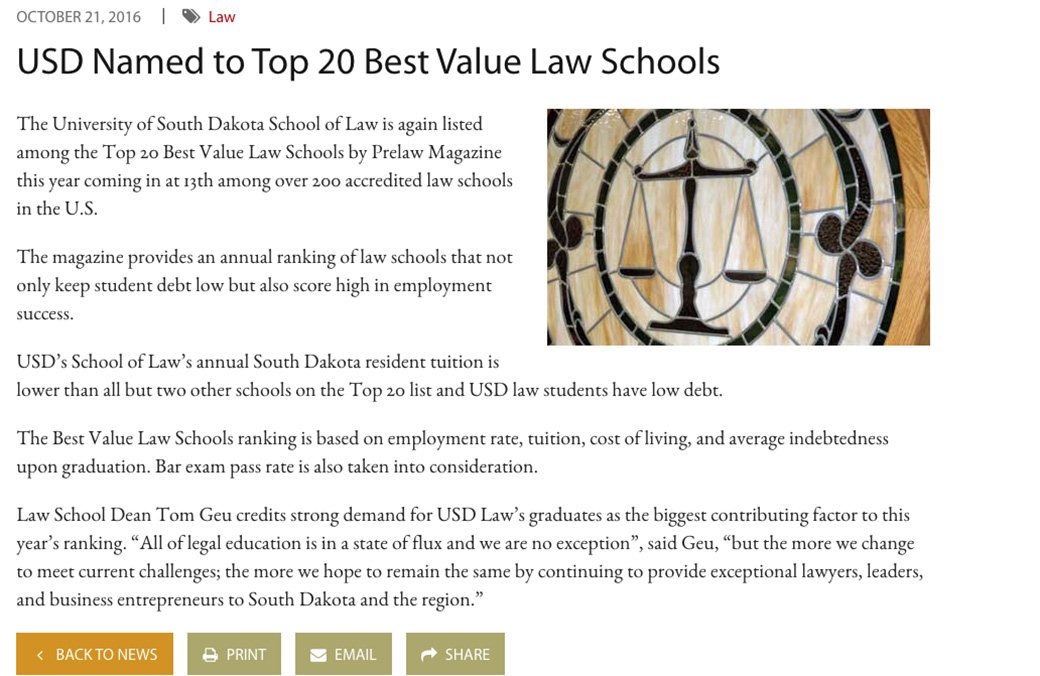
Better than all the rest: USD ranking among ‘top’ lists not an exact science
It’s good to be the best, but how are the best decided? That’s the question that officials from USD’s office of marketing communications & university relations have to decide every time the university lands on a new college ranking list.
On Friday, USD was named as one of “the top 20 best value law schools,” by Prelaw Magazine, coming in 13th among over 200 accredited law schools and in September, the Beacom School of Business landed on the Princeton Review’s list as one of the top 25 online MBA programs, coming in at No.11. These are only some of the many lists that USD lands on each month which are published in press releases on the university’s website.
Tena Haraldson, the director of communications and media relations for USD, said her office makes the decisions on which rankings to publicize.
“We tend to do the major, well-known ones every year — those that haven’t been proven in the past — like U.S. News, Princeton Review, Prelaw Magazine, Forbes, etc.,” Haraldson said in an email. “If the ranking is for a certain school, like Beacom School of Business, we ask the dean about the validity of the ranking.”
USD doesn’t pay anyone to use their ranking and a story isn’t written about every ranking the university gets, Haraldson said. She also said choosing which ones to use isn’t “an exact science.”
“Each year seems to bring more people sending us rankings,” she said. “We look at their websites to see the method they use. Some just analyze statistics that are reported to the feds. Others actually survey students for opinions.”
In the case of USD’s law school finding its way onto the best value law schools list by Prelaw Magazine, the ranking was based on employment rate, tuition, cost of living and average indebtedness upon graduation. Bar exam pass rates were also taken into consideration. Most of that data came from ABA 509 forms, paperwork required by the American Bar Association every year. The employment data used was a modified number that comes from a calculator tool made by the Institute for the Advancement of the American Legal System, according to an email from Katie Thisdell, the managing editor of Prelaw Magazine.
Haraldson said the methodology behind how USD ends up on lists plays a large part in whether or not the lists are published.
“Our decisions are based on whether we think publishing the ranking will enhance the reputation of USD. We don’t want to send out too many, and we certainly don’t want to publicize a ranking that has questionable information behind it,” she said. “Prospective students and parents do look at rankings, but there are many other factors that are more important in choosing a college.”
